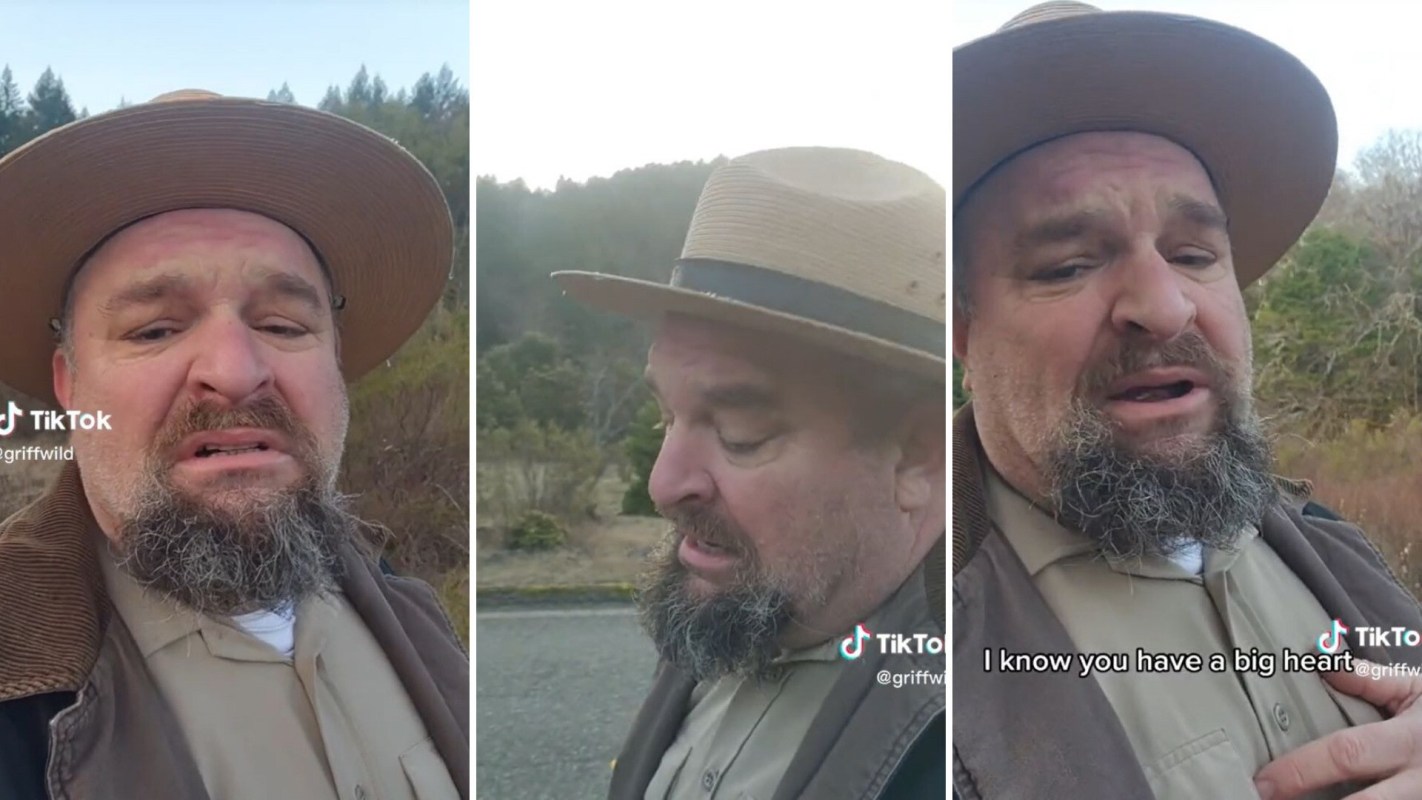"You know who has the biggest heart in the world? People who feed wildlife. But stop it please. Stop it!"
That was the plea of wildlife expert Griff (@griffwild) in his popular TikTok video that explains why feeding wild animals actually harms them.
John Griff, also known as Griff, is a longtime conservationist working for California State Parks. He's also the host of the Animal Planet show "Wild Jobs."
@griffwild there are better ways to help wildlife than feeding them #learnontiktok #edutok #naturelover #naturetok #animalrescue #wildlifecoexistence @sacramentofoodforest @nativeplanttok ♬ original sound - Griff
In his video, he explains that feeding wild animals habituates them to humans, which means they lose their inhibitions around us.
"When a wild animal loses its fear of humans, it rarely ever ends well," he says.
Feeding wild animals like coyotes and raccoons can also artificially boost their populations. If you move, a major starvation event could occur as the food you've been giving them disappears.
In addition, your neighbors may not like the influx of wild residents in the neighborhood and may leave out poison. This poison could end up being ingested by any and all animals in the neighborhood. Not only is poison a threat when directly consumed, but any animal who eats a poisoned animal can get sick or die, too.
Instead of feeding wildlife, Griff offers a better alternative: planting native plants, which can provide food and cover for wild animals. He recommends visiting the website Native Plants Finder, which was created by the National Wildlife Federation. All you have to do is enter your zip code, and the site will tell you which plants are native to your area.
Planting native flowers and grasses helps support pollinators, which are responsible for one out of every three bites of food we eat. They are crucial to our food systems but are in danger across the world due to declining habitat and pesticide poisoning.
At Native Plants Finder, the plants are ranked by the number of butterfly and moth species that use them as host plants for their caterpillars.
Native plants are also better for your yard because they do not require fertilizer and need less pest management. In addition, they don't need as much water as non-natives, saving you money. Plus, you don't have to mow native grasses!
Even if you don't have a backyard, you can implement three to four plants into your outdoor space — even if it's just a balcony, Griff says.
His video has amassed nearly 50,000 likes, and viewers expressed their gratitude with comments like "Preach!" and "Thank you for educating people!"
Others thanked him for the non-judgmental delivery of his message. "I love how kindly you explained this to people," one person commented.
A few others wondered whether it was okay to feed birds, with one asking, "What about crows? I've been feeding a few peanuts to my local crow family a few times a month. Now I'm worried."
Griff said that most bird feeding is fine and recommended for people check out allaboutbirds.org.
Join our free newsletter for cool news and cool tips that make it easy to help yourself while helping the planet.









